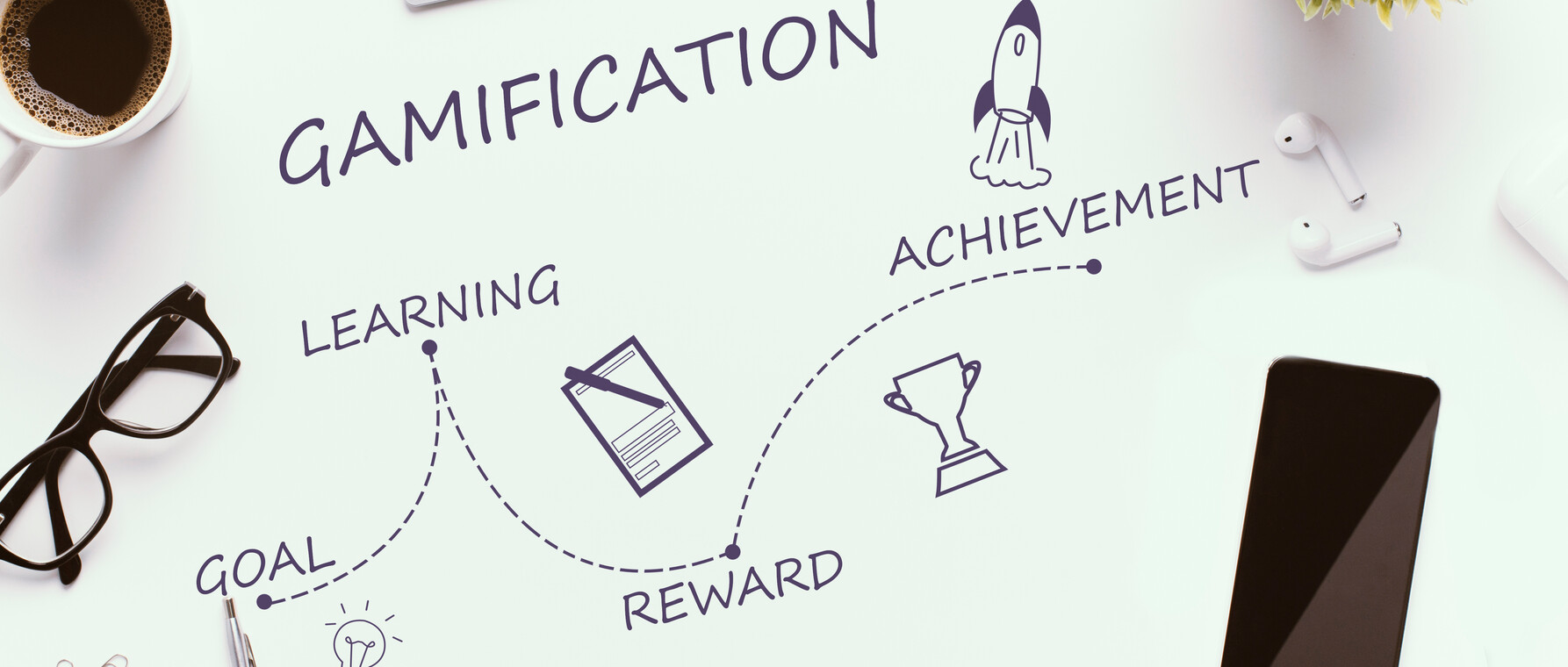Gamifying Research and Writing
Notes From a Writer's Desk

Here is a scenario that is not too difficult to picture: you have a dissertation chapter that you need to write, but you’ve had no motivation (or time) to write it. I can’t tell you how many times during the process I sat down at my computer to do some writing, and suddenly the ideas or words I had envisioned in my head, not minutes prior, just evaporated. This was especially true during the pandemic, when the commute to my workspace was reduced to the five feet between my bed and my desk. I tried several ways to boost productivity and improve my writing habits, including simple goal setting and establishing arbitrary deadlines, but this didn’t encourage a productive pace and left wiggle room that procrastination always found a way to fill. I sought different ways to improve this goal-setting method, and I found gamification to be worthwhile.
The object of gamification is to utilize game elements, including gameplay mechanics and structure, point scoring, competition, and prizes, to encourage certain behaviors. Gamification is often used by companies to encourage consumer engagement with products. Frequent flier miles are a great example, as accruing points through repeated use of an airline can result in rewards like free flights or upgrades. Another noteworthy example is the system of achievements embedded in many video games. These achievements may be tied to core missions or game mechanics or associated with arbitrary tasks available in the normal course of the game, and they often reward the player with a score, digitally tangible badge, or in-game trinket.
We can utilize similar models to mask the “work” aspect of our research and writing by associating it with something fun, motivating, or rewarding. I used an achievement system towards the end of my own dissertation work, and my favorite arbitrary dissertation achievement was for my bibliography to have authors representing every letter in the alphabet, which I achieved thanks to an article on doubled divinities in the Phoenician world by Paolo Xella.
Recently, I led a workshop called “Gamifying the Dissertation,” where I presented ideas on gamifying research and writing. I offered some basic examples of the do-it-yourself (DIY) approach that students could develop on their own or with a group of friends or colleagues, including:
Create a points system
You can motivate yourself to write by assigning values to aspects of your writing, such as word count or time spent writing. You can track points at week or month intervals and try to set a high score. Alternatively, you can collect points and exchange them for rewards, like a weekend trip, a date with your significant other, purchasing a coat, or going to Costco. A points system is a fun way to compartmentalize larger projects into smaller, more manageable chunks, and to reward yourself for each step of the process. You can also share it with your friends and compete for rewards, or even recruit friends and family to supply rewards for you to strive toward.
Create your own game
If you are interested in something more complex, you can create your own game centered around your research and writing habits. For example, you could create a list of enemies that require a certain amount of XP to defeat, which you can earn by completing certain research or writing tasks. You can introduce randomness by using cards or dice to determine the XP required to defeat an enemy or the amount of XP awarded per task. This can also be a group accountability activity, with each member responsible for gaining enough XP to collaboratively defeat enemies.
Workshop attendees brainstormed ideas for gamifying their work and for designing a useful system for students from different disciplines. They also raised interesting questions about gamification, including what can be considered an incentive—is ice cream an incentive, a motivator, or both?—and how to keep gamification from consuming us and hindering progress, thus defeating its purpose. One way to potentially avoid this pitfall is to use a ready-made platform for habit and/or writing tracking, such as:
Modeled after Dungeons and Dragons-type RPGs. Uses a dungeon master who assembles a player party and designs a campaign of pre-made or custom tasks that reward XP.
Allows you to specify your tasks, level of difficulty, and rewards. Its user-friendly interface reminds me of a gamified version of Trello and other similar task managers.
Combat-RPG concept aimed at writing, with a focus on word count that translates into XP needed to defeat a series of monsters on your quest.
Uses monetary incentives, allowing you to place bets on yourself to accomplish your goals. If you don’t meet your goals within certain parameters or with a certain consistency, you pay up.
Uses a variety of incentives in its three different base modes: Stimulus, which encourages focus and productivity by changing the audio-visual elements of the interface; Consequence, which punishes you with alarm noises and images of spiders; and Reward, which treats you to pleasant sounds and images like kittens and puppies. For real risk-takers, there is also Kamikaze mode, which will start deleting your work if you don't meet your goals.
On this free platform, you can set your own word goal intervals (100, 200, 500, 1000 words), and at each interval, you are rewarded with a picture of a kitten, puppy, or bunny.
Awards you with points for participating each day and for writing 750 words each day. You can also compete with others on monthly challenge leaderboards.
A more active writing catalyst, pitting you against a monster who drains your health over time, and who can only be defeated by meeting your self-imposed word goal.
There are many options available for those interested in gamifying their research and writing habits, and there are many options I have missed. If anyone has a platform that they use, please feel free to let me know at ashannon@fas.harvard.edu.
Ready to book an appointment with FWC staff? Access the FWC intake form.
Banner courtesy of Shutterstock
Get the Latest Updates
Join Our Newsletter
Subscribe to Colloquy Podcast
Simplecast




